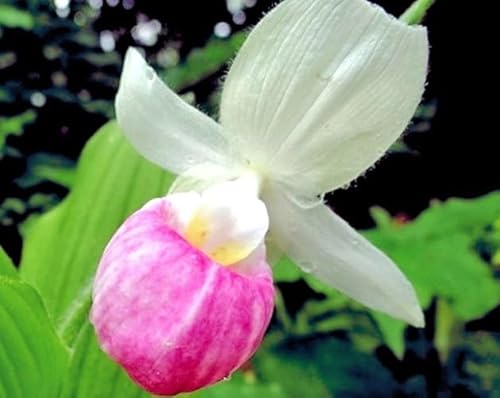Sadly, this issue has arisen several times in the past year in our local society- and outcomes varied.
As a general rule, and I say this as someone who has had an interesting side career helping estates sell wine and other collections that were unwanted by heirs, the best thing you can do for yourself and any collections you have that heirs do not want is to try and sell them in your lifetime. Obviously keep what you would like to enjoy for the rest of your life, but as the time comes to downsize- plan ahead so you can maximize your return. Not just in orchids and wine, but in a number of other hobby areas, I have seen people take a carefully planned downsizing approach and get themselves anywhere from a few thousands to several hundred thousand dollars of unexpected/unplanned for money at a time in life when it really made a difference.
For orchids, the best thing is to first look at what is going on in your local society. How big is the group? Are there already regular monthly raffles and member sales tables activities? If so, what are the prices like generally? Does the society buy its raffle plants? (most do.) If every month people are putting $1-$5 Home Depot rescues on the member plan sales table, then expectations are such that you might have a hard time selling plants for $20 or more- even high quality ones. But the good news is that if this is a viable option for you, by selling a few plants at a time and not flooding the local market, you can get a lot more money per plant over time. This is how I realigned my show inventory after COVID. For about a year I sold a few plants at a time at the local monthly meeting sales table and then a combo of donating/selling seedlings to the society for their raffles.
Generally speaking- if you are looking to get 20 to 30 cents on the dollar as compared to what a retailer would charge for the same plant- you should do well. That may sound low, but remember the goal is to sell a lot of plants quickly. That always affects the price.
Once you consider regular local options, here are some ideas for special sales events,
1. Look to forums like slippertalk. Remember Denver from about 8 years ago? He was the amazingly talented Paph grower from North Dallas. He planned ahead and listed his collection here, and with me taking point on gathering and allocating the plants among a group of about 10 people who wanted to buy them- the collection was sold for a very good price for him as compared to a fire sale situation, and all of us who bought got some nice deals on great plants.
2. Sell at an orchid show. Here in Texas, in a post-pandemic world with more people growing orchids the show scene has been spectacular the last two years. At Dallas last year we had a society sales table that I ran, and members could bring up to a certain number of plants to be sold as long as at least 20% was donated to the society. We suspended the limit for one expert local grower who was downsizing in retirement, and both the society and the grower did very well selling a large number of plants in that fashion. Blooming plants are king, but if you have nice healthy out of bloom plants you are willing to sell for about half the going rate of the same plant in bloom, you have good odds.
If the society does not have a sales table, buy a table or two and register as a vendor.
3. Organize a one-time private sale at your home or planned venue that is advertised by an orchid society or AOS judging center. In exchange for the advertising, give a % of sales to that entity. This is usually the best option for local judges and long-time growers who are known to have very good plants and can advertise them to a large audience.
4. The donation route is tricky. The sad fact is that when someone is moving or downsizing, parasitic people come out of the woodwork. Just giving away the plants is an option, but you get nothing in return and the plants are not assured of going to a good home. Point being- please be careful even just letting a few friends come over and take free plants. Word travels fast and I have seen many a situation where scavengers took many a liberty (even trespassing) to take things they had convinced themselves they were entitled to take.
The best way to donate, IMHO, is to formally document and donate the collection to an educational institution or 501c(3) charitable entity that can then either retain and grow, or sell the plants and keep the funds for their own future use. The best part is that you get a donation receipt and can take a tax deduction on the value of the donation. This is best done prior to retirement while you are still earning a full-time income since you will be in a higher tax bracket and thus potentially get a much bigger dollar impact from your write off. Note that this process requires careful attention to tax laws and that donation claims over a certain amount (I believe it is $5,000?) require formal third party appraisals and other careful documentation. I am a CPA, but I am NOT a tax CPA- and so please undertake this route only with the guidance of a CPA who is an expert in the jurisdictions in which you are subject to personal income tax.
Hope this is helpful.












































